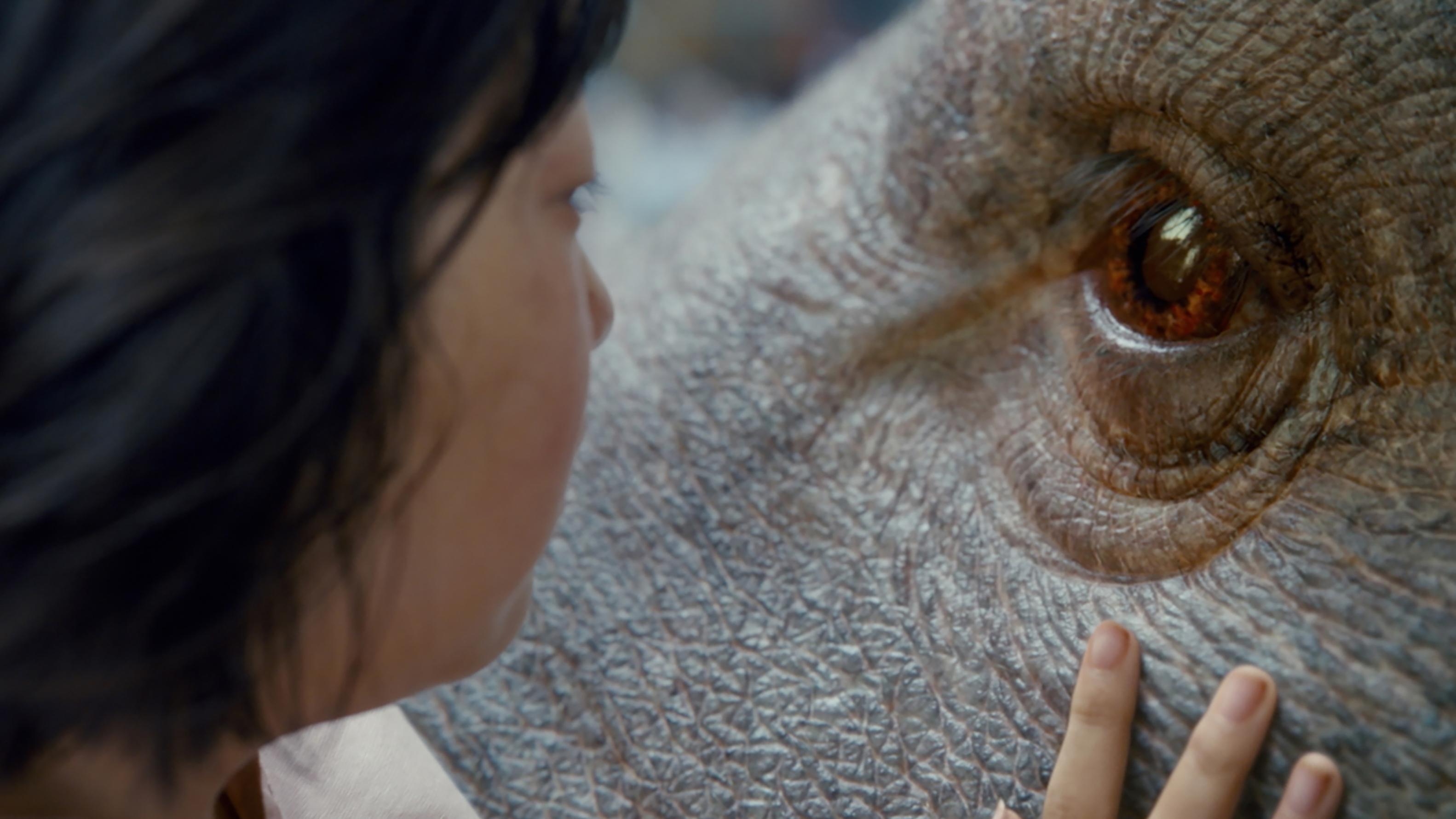
CANNES FILM FESTIVAL 2017
‘Okja’ isn’t your average adventure pig movie
By Emily Bice, Daily Arts Writer
Netflix

It was a rocky start for the premiere of “Okja,” a Netflix distributed film in competition for the Palme d’Or at the Cannes Film Festival. As soon as the lights went down, the audience began emphatically booing, clapping and shouting. Initially this seemed simply to be a reaction to the highly controversial inclusion of a Netflix distributed film at Cannes. The streaming service’s lack of distribution to theatres, in addition to the decision to include not one but two films (Noah Baumbach's “The Meyerowitz Stories”) in competition for the Palme d'Or has been a source of debate and dissention at the festival. So when the film played for seven minutes with half of the screen covered, inhibiting viewers from seeing 50% of the film, it was not ideal.
The rocky start was quickly forgiven, however, when “Okja” began. The film, written and directed by Korean filmmaker Bong Joon-Ho (“Snowpiercer”), examines the ethics of the mass production meat industry — only it is disguised as an action/adventure film. The story follows Mija (Ahn Seo-hyun, “The Housemaid”), a young South Korean farm girl, as she embarks on an international hero’s journey to save her best friend, the prized “super” pig Okja. Okja is a product of genetic modification experiments at the Mirando Corporation, a powerful company eager to maximize profits.
The story begins in 2007 when the child-like, well-intended Lucy Mirando (Tilda Swinton, “The Grand Budapest Hotel”) launches a competition of super proportions. In a society where consumers are hyper concerned about what they’re eating, how it was raised and whether or not it contains GMO’s, the Mirando Corporation wanted consumers to think that the meat they are eating is clean. So Lucy Mirando explains that through “all natural methods,” 26 “super” pigs have been born and sent all over the world to be raised by local farmers. In ten years time the farmers and their pigs will be revisited by TV scientist Dr. Johnny (Jake Gyllenhaal, “Nightcrawler”), and he will then decide which “super pig” is the cream of the crop. Also, Mirando notes, “they’ve got to taste fucking good.”
Ten years later in the mountains of South Korea, we meet our heroine Mija. Having grown up together, Mija and Okja share a bond far beyond prized pig and farmer — they are family. When Okja saves Mija’s life as she precariously dangles from a mountain edge, Mija whispers into her ear to comfort and thank the pig. Here, it becomes apparent that Okja is not just a very large farm animal. She is an emotive and intelligent creature, and she is aware of her surroundings.
When the time comes for Okja to be taken back to New York for the big competition, where she will presumably be slaughtered and turned into someone’s hot dog, Mija embarks on an adventure to bring Okja back home. With the help of the Animal Liberation Front, a “peaceful group” dedicated to freeing animals like Okja, Mija fights her way through Seoul, New Jersey and finally Manhattan.
The film is fresh, comedic and heartwarming. It entertains viewers. But the action packed sequences through metro stations and Times Square aren’t what’s exciting about “Okja.” Director Bong Joon-ho has managed to create a mainstream film which inspires a much needed conversation on the ethics of mass produced, genetically modified meat. By giving Okja a personality and a story, something that could easily be seen as a freak farm animal (Okja is roughly the size of a large elephant) is humanized instead. It raises the question, “where should the line be drawn when it comes to treatment of animals raised for slaughter?”
Joon-ho’s film shows the line being crossed. As part of the adventure to save Okja, it gives viewers painful glimpses into what’s involved in making the bacon in Aisle 3 — and it isn’t pretty. What’s interesting, however, is that Joon-ho does not villainize any of the characters at Mirando Corporation, with the exception of the deranged Dr. Johnny. The Mirando Corporation is not setting out to torture animals. The Mirando Corporation wants to make a profit.
In the production facility, Mija asks Nancy Mirando (Lucy’s twin sister), “why do you want to kill Okja”? Mirando replies without a beat, “we can only sell the dead ones.”
And that’s what “Okja” is about. It does not exist to criticize all meat-eaters by introducing the humanistic, emotive Okja. The film stands to point out that there are right and wrong ways to produce and consume meat, and the way of the Mirando Corporation is not the right one. It’s a perfect storm of “Food Inc,“ an action/adventure film and a bit of Upton Sinclair’s “The Jungle.” It’s sensational, but remains entertaining. There is enough humor and star quality in the film to make people want to watch.
The triumph of “Okja” isn’t the striking visuals, witty script or impressive acting; the triumph is the creation of a conversation of an important issue without shoving it down viewers’ throats. The only thing shoved down throats in “Okja” is a very large sausage at the Super Pig Parade — but after this film, I won’t be eating one of those again.